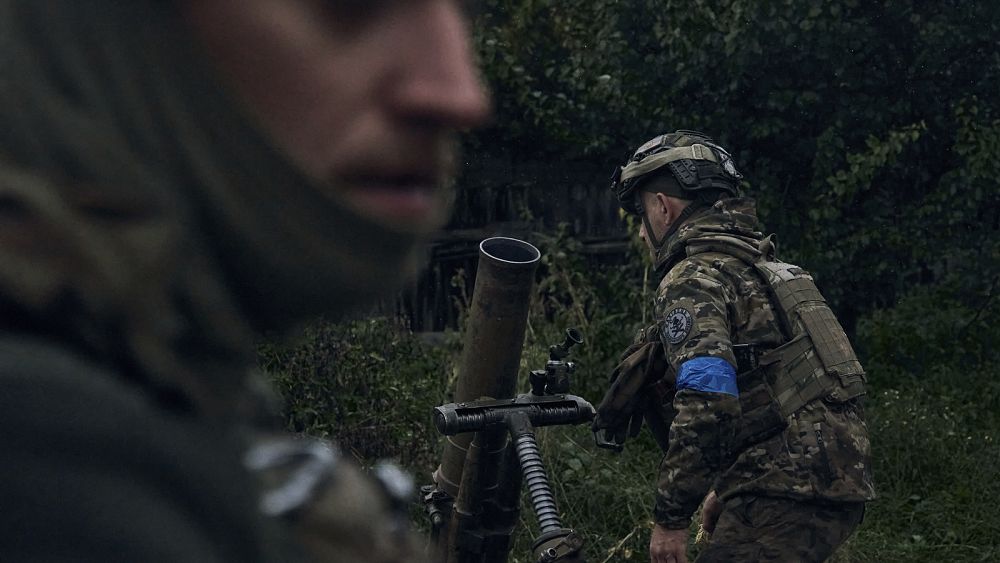Ukraine war: Five key developments to know about today

1. Ukraine accuses Russia of coercion in ‘sham’ referenda
Russia launched referendums on Friday aimed at annexing four occupied regions of Ukraine, raising the stakes in what Kyiv has called a sham that saw residents threatened with punishment if they did not vote.
Ukrainian officials said people were banned from leaving some occupied areas until the four-day vote was over, armed groups were going into homes, and employees were threatened with dismissal if they did not participate.
“Today, the best thing for the people of Kherson would be not to open their doors,” said Yuriy Sobolevsky, the displaced first deputy council chairman of Kherson region.
The referendums on joining Russia were hastily-organised after Ukraine recaptured large parts of the northeast in a counter-offensive earlier this month.
2. Investigation finds Russia committed war crimes
A UN-mandated body on Friday stated that war crimes, including rape, executions, torture and confinement of children were committed by Russia in areas it occupied in Ukraine.
The commission is one of the first international bodies to reach the conclusion on the basis of field evidence. Ukraine and its Western allies have accused Russian soldiers of a litany of abuses since the invasion, but Moscow has regularly dismissed the allegations as a smear campaign.
“Based on the evidence gathered by the Commission, it has concluded that war crimes have been committed in Ukraine,” Erik Mose, who heads the Commission of Inquiry on Ukraine, told the UN Human Rights Council in Geneva.
He did not give an estimate of how many crimes had taken place, but later said in an interview that “a large number” had been committed by Russia and two cases by Ukraine involving the mistreatment of Russian soldiers.
The Kremlin denies deliberately attacking civilians during what it still describes as its “special military operation”.
Russia was called on to respond to the accusations at the council meeting, but has yet to provide an answer.
3. Italian ex-PM Berlusconi claims Putin was ‘pushed’ into invading Ukraine
Former Italian Prime Minister Silvio Berlusconi claimed Thursday that Russian President Vladimir Putin was “pushed” into invading Ukraine and wanted to put “decent people” in charge of Kyiv, drawing significant controversy in Italy.
The Italian leader, whose Go Italy (Forza Italia) party belongs to a right-wing bloc headed by Giorgia Meloni and likely to win Sunday’s snap election, is a long-time friend of Putin and his comments are likely to alarm Western allies.
“Putin was pushed by the Russian people, by his party, by his ministers to come up with this special operation,” Berlusconi told Italian public television RAI late on Thursday, using the official Russian wording for the war.
Russia’s plan was originally to conquer Kyiv “in a week”, and replace the democratically elected Ukrainian President Volodymyr Zelenskyy with “a government of decent people” and get out “in another week,” he said.
Centre-left leader and opponent Enrico Letta rebutted by stating that “Putin’s words are very serious… [i]f on Sunday the left were to win, the happiest person would be Putin.”
4. Moscow’s draft hits rural regions hard
On Wednesday, Putin announced the mobilisation of 300,000 reservists to go and fight in Ukraine – a decision that has sparked an outcry in Russia and has hit the country’s rural regions particularly hard.
In Buryatia, a mostly rural region wrapped around the southern shore of Lake Baikal, the mobilisation has seen some men drafted regardless of their age, military record or medical history, according to interviews with local residents, rights activists and even statements by local officials.
Buryat rights activists suspect that the burden of the mobilisation – and the war itself – is falling on poor, ethnic minority regions to avoid triggering popular anger in the capital Moscow, which is 6,000 km away.
Putin always underscores that Russia, where hundreds of ethnic groups have lived for centuries alongside the majority Slav population, is a multi-ethnic state and that soldiers of any ethnicity are heroes if they fight for Russia.
“It hurts me that the state only remembered him after he was dead,” Semyonova, a professional musician and activist in Ulan-Ude, told Reuters, recounting the call-up for her brother.
“He was an invalid, and had never served in the army.”
5. Russia increasingly isolated from its partners
The tide of global opinion appears to be decisively shifting against Russia, as a number of non-aligned countries are joining the United States and its allies in condemning Moscow and its war in Ukraine.
While most Western countries were decisively united in their opposition to the conflict, this was not the case for nations like India and China.
But now, both countries have been critical of the war in Ukraine, and on Tuesday, Wednesday and Thursday, much of the international community spoke out against the conflict in a rare display of unity at the often fractured United Nations.
The UN General Assembly also disregarded Russia’s objections and voted overwhelmingly for Ukrainian President Zelenskyy to be the only leader to address the body remotely, instead of requiring him to appear in person.
At the Shanghai Cooperation Organisation (SCO) summit earlier this month, Indian Prime Minister Narendra Modi criticised Moscow’s war.
“I know that today’s era is not an era of war, and I have spoken to you on the phone about this,” Modi told Putin at a televised meeting in the ancient Uzbek Silk Road city of Samarkand.
Ukraine war: Five key developments to know about today
Source: Reporters View PH
No comments